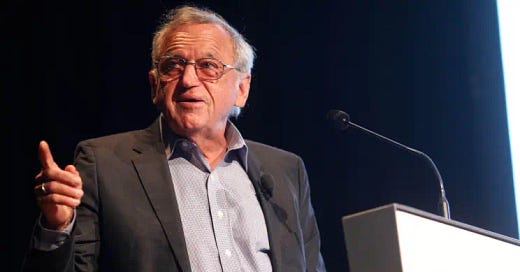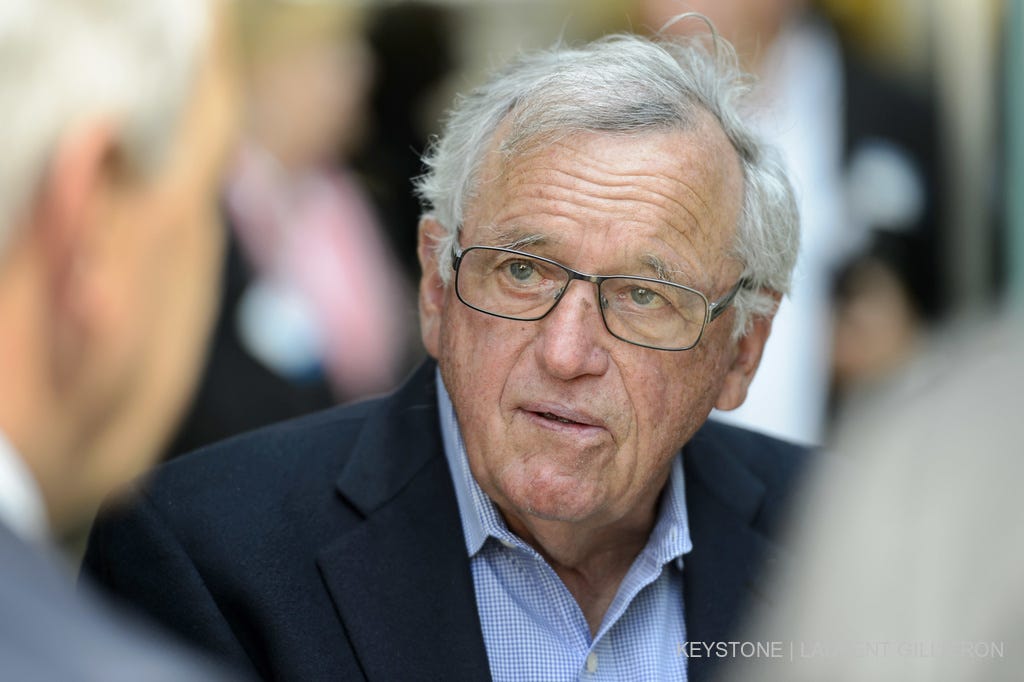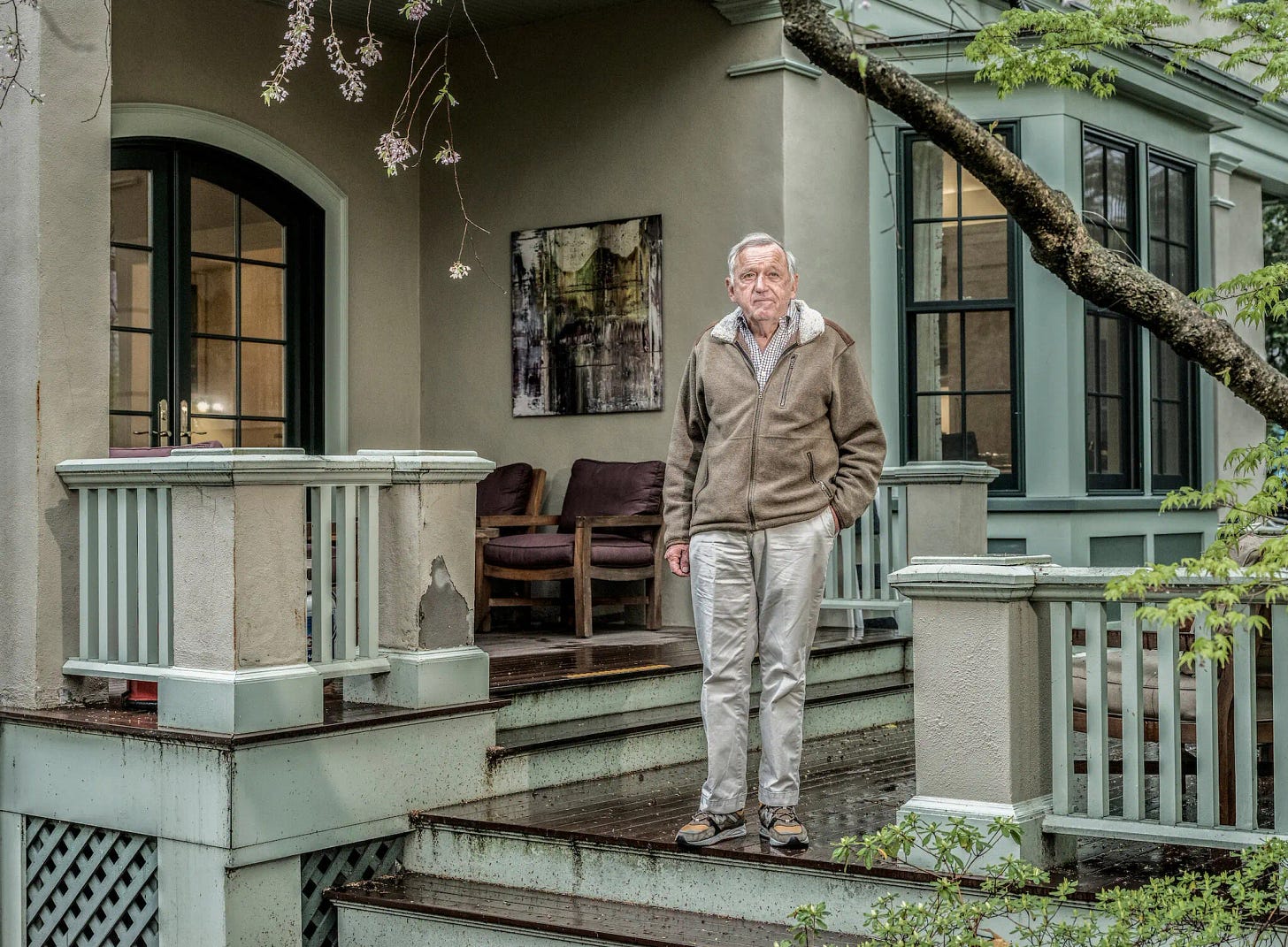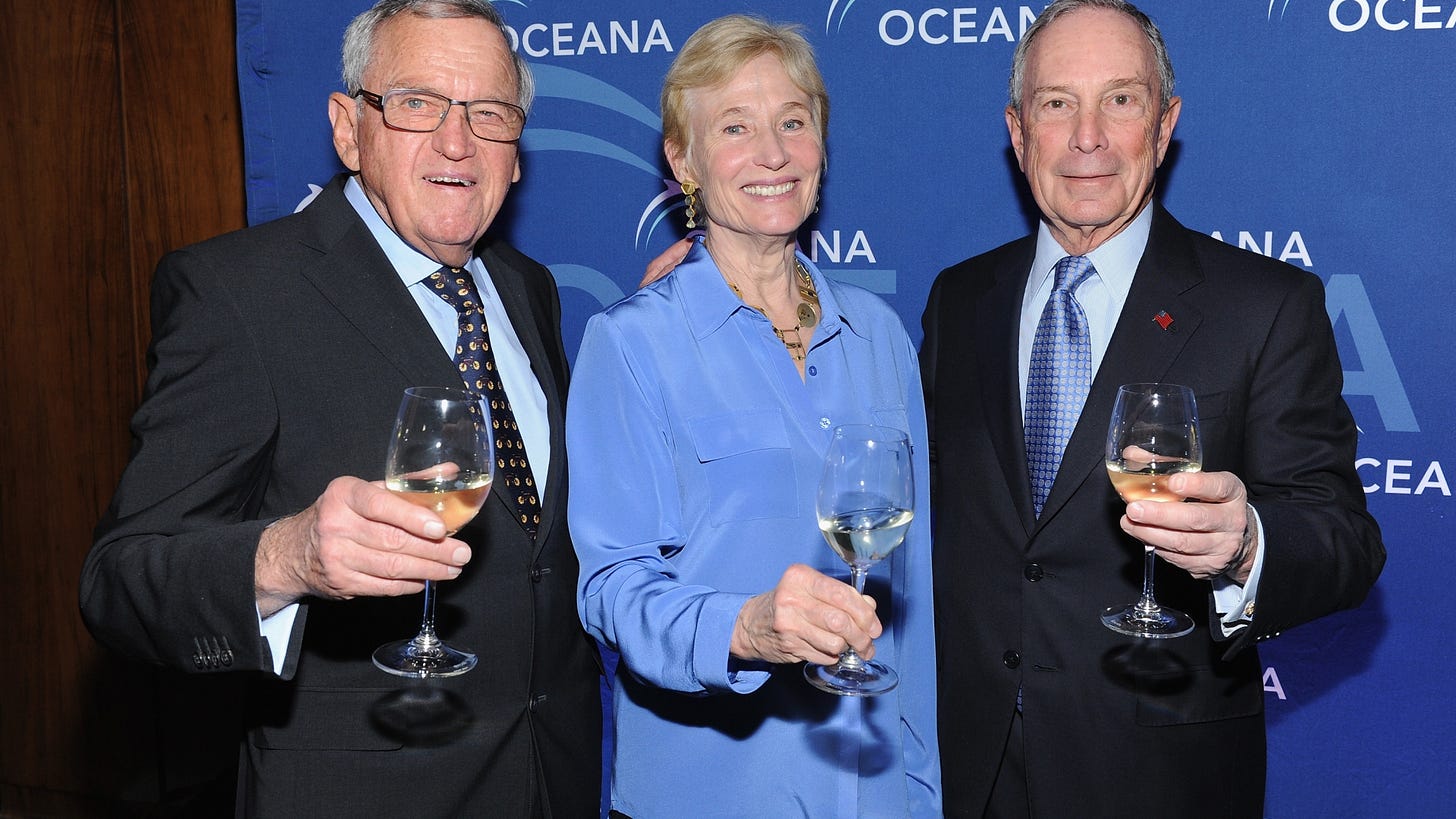Old, Rich and Swiss - Profile #2
His billions came from medicine - but Hansjörg Wyss's influence goes way beyond that...
Dear Insider,
We recently highlighted the latest multi-million dollar investment of 87-year old Swiss billionaire Hansjörg Wyss.
This time it was over $100 million to support an energy project from EPFL and ETH that aims to capture and store energy - and help make Switzerland (even more) energy independent.
That move is typical of Wyss - environmentally-focused, generous and science-oriented.
Although he doesn’t always make such headlines - Hansjörg Wyss is compelling example of both “old, Swiss money” - coupled with a very forward-focused outlook.
Let’s dive deeper into his life and work to see what it can tell us about Switzerland today - and the future.
Money in medicine
In the beginning, Hansjörg Wyss was a smart man.
Born in Bern in 1935, he got a degree in civil engineering from ETH Zürich and an MBA from Harvard University.
Both certainly helped him - but none as much as what he did next.
After meeting Martin Allgoewer, founder of the AO Foundation, Wyss took on the challenge of selling AO’s medical devices in the United States as CEO of a new company called Synthes. He handled manufacturing (setting up plants in the US) and expanded aggressively in the extremely lucrative American market.
One key to his success? Education.
Since all new innovations require a certain learning curve, Wyss made certain to provide surgeons with highly valuable training in using Synthes’s devices.
After a rough spell in 2009, when four Synthes execs were convicted of selling a bone cement that had not been approved by the FDA - and which lead to the deaths of three people - Wyss eventually decided to sell out.
He completed a sale of Synthes to Johnshon & Johnson in 2012 which was worth nearly $20 billion - including over $3.5 billion in cash for Wyss.
That made him an extremely rich man.
In the name of the…
With such a profile, it comes as no surprise that Wyss’s name pops all over the place.
The Wyss Foundation - established in 1998 - supports projects in land conservation, environmental protection and social justice. Its scholars program supports (among others) the Yale University School of Environment and the University of Montana College of Forestry and Conservation Law.
And the Foundation’s assets are not trivial - over $2 billion worth according to tax filings in 2019.
His name also graces the Wyss Institute for Biologically Inspired Engineering at Harvard University and the Wyss Center for Bio and Neuroengineering in Geneva.
In recent years, the Swiss billionaire’s name has been linked to other, less scientific projects.
In early 2022, Wyss popped up in British papers in connection with the possible sale of Chelsea football club after anti-Russian sanctions forced then-owner Roman Abramovich to give up the franchise. He eventually joined forces with fellow billionaires Todd Boehly and Mark Walter to complete the deal.
More recently Wyss was rumored to be part of a Swiss group that invested into Credit Suisse - alongside sovereign funds from Qatar and Saudi Arabia - when the Swiss bank called for funds in the fall of 2022. If it was the case, the capital injection clearly did not pay off…
On the “home front”, Wyss has also put money into another, smaller financial institution.
In late 2020, he bought out Jörg Bantleon of his 9.7% stake in Bellevue Group - the active manager with a close focus on ESG and healthcare investments.
Power in politics
Like many men with money - Wyss has not sat idly on the sidelines in the realm of politics.
His left-leaning stance on many issues has aligned him with the Democratic Party in the US and his donations (numbering in the millions) reflect that.
A New York Times investigation revealed in 2021 that Wyss had quietly donated over $200 million to progressive groups that in turn helped support Democratic causes. The election of Donald Trump seemed to spur him to do even more.
One attempt to wield even more power in American politics came to nothing. Wyss helped make a bid to buy Tribune Publishing - the organization behind the Chicago Tribune. Whether because of unfavorable reactions or otherwise, Wyss walked away from the group that had originally bid over $600 million to buy the publishing group.
💡The Insider Angle
The success of Hansjörg Wyss gives rise to two questions.
Firstly, why was he so successful?
And secondly, can his good fortune be replicated - or put more succintly, what can we learn from him?
Wyss certainly profited from the fact that he found an industry category that was ripe with opportunity. Medicine in the 1970’s was in full modernization mode and Synthes was at the forefront with its products.
But more than that - Wyss made a wise decision in concentrating on the US market. He did not confine himself to the narrow Swiss market - nor did he let his ambitions stop in Europe. Even at that point, stiff regulation and a notoriously anti-progressive attitude in socialized medicine would have hindered him in France, Germany and the United Kingdom.
In the United States, he found a perfect place to make his fortune.
The wider lesson - often repeated among Swiss businesses - is that high-quality manufactured goods (in this case in medicine) combined with a quickly growing market can make for amazing returns.
A big enough market combined with high enough quality is very much a winning combination.
The fact that Hansjörg Wyss has used his success to power a strong progressive outlook clearly illustrates his belief that progress is to be embraced, not ignored.
And it speaks to his unique character that at 80+ years old - you can be old, rich and Swiss…and still very influential.






